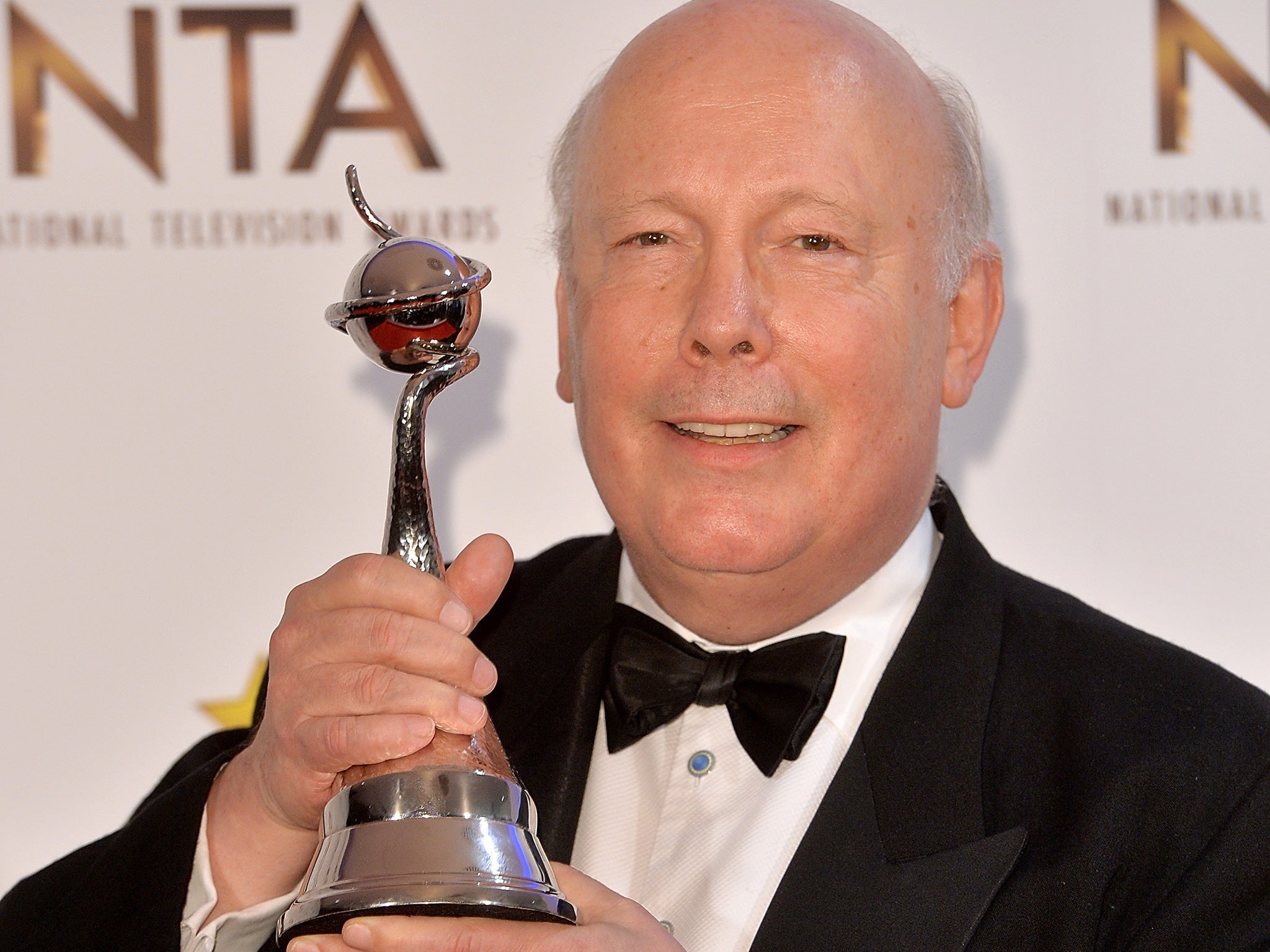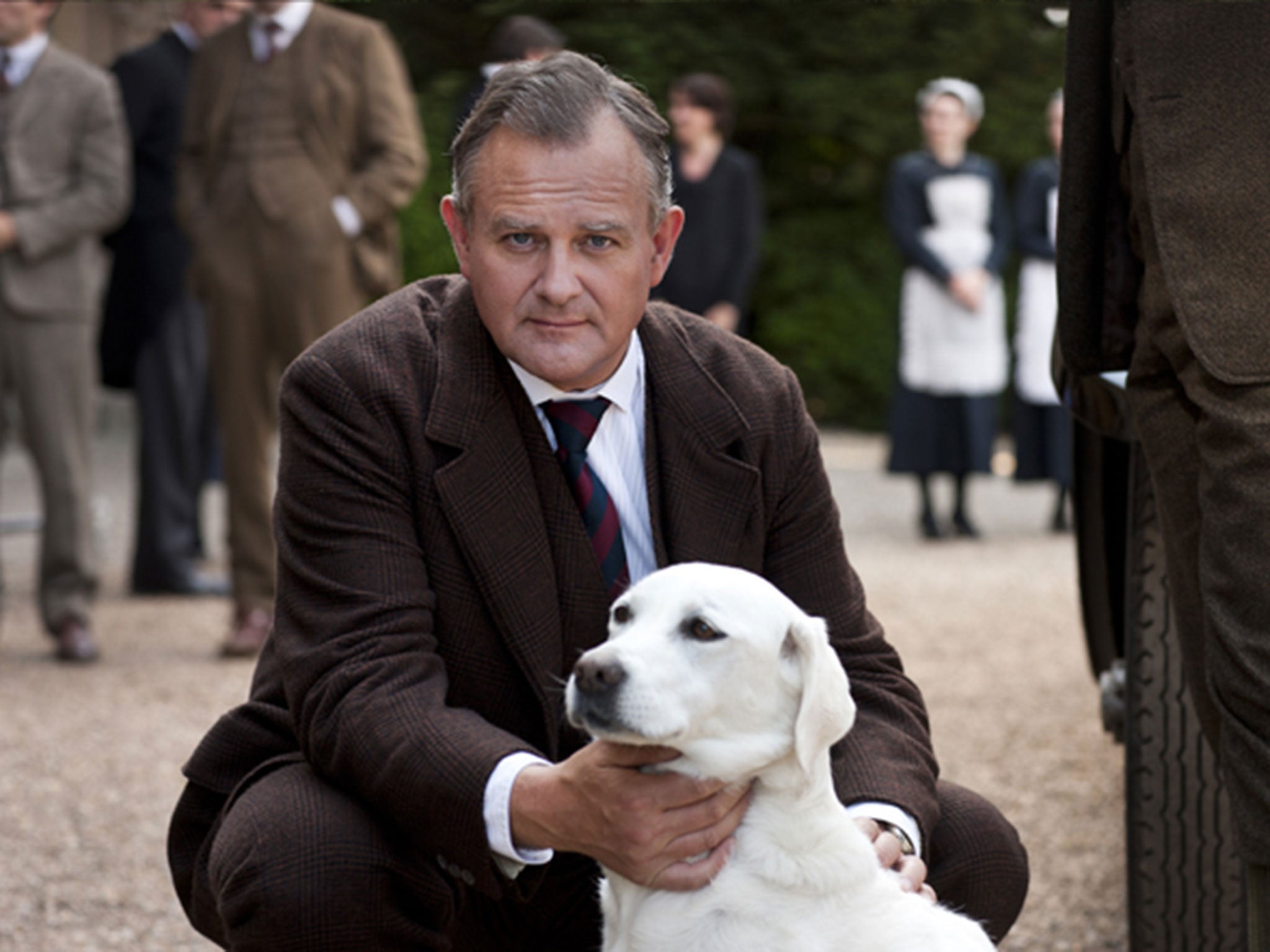Downton Abbey final series: Julian Fellowes reveals fears show would 'start to fall away' prompted decision to 'go out on a high'
Hugh Bonneville says cast were informed 18 months ago that show would end

Your support helps us to tell the story
From reproductive rights to climate change to Big Tech, The Independent is on the ground when the story is developing. Whether it's investigating the financials of Elon Musk's pro-Trump PAC or producing our latest documentary, 'The A Word', which shines a light on the American women fighting for reproductive rights, we know how important it is to parse out the facts from the messaging.
At such a critical moment in US history, we need reporters on the ground. Your donation allows us to keep sending journalists to speak to both sides of the story.
The Independent is trusted by Americans across the entire political spectrum. And unlike many other quality news outlets, we choose not to lock Americans out of our reporting and analysis with paywalls. We believe quality journalism should be available to everyone, paid for by those who can afford it.
Your support makes all the difference.Downton Abbey’s creator Julian Fellowes acknowledged today that he had concerns that the Emmy-award winning show might “start to fall away” before deciding that the upcoming sixth series would be the last.
Hugh Bonneville, who stars in the ITV period drama as the Earl of Grantham, revealed that the cast had been informed 18 months ago that the show was being brought to an end.
Speaking at the launch of the final series, Lord Fellowes was asked if Downton risked damaging its legacy as a landmark show by continuing for too long. “There’s always that concern with any show – you don’t want it to go on and start to fall away and start to dwindle,” he said. “We could probably all name favourite shows that we adored for the first three or four series and then gradually lost interest in.”
He said that by ending the show now, he hoped to go out on a high. “We wanted to try and be sure that we would go out when people were still sorry.” Downton Abbey was earlier this week honoured by Bafta with a “special award” for its global success. Only the Harry Potter franchise has had a similar accolade from the academy. Lord Fellowes said: “It seems the right time to go while we are still firing.”
At its height Downton had ratings of 9.5m and even by the start of series five it attracted a loyal 8.4m. Lord Fellowes said that the senior production team “had actually thought of ending it at the end of [series] five but it seemed a bit cramped and we thought we needed one series that was essentially all about resolution of the whole thing.”
There is expectation that a film version of the hit show would be made and members of the cast, including Dame Maggie Smith (Violet, Dowager Countess of Grantham) expressed interest in such a project. Executive Producer Gareth Neame said: “Were there ever to be a Downton movie it strangely has to be just like the TV show and yet at the same time completely different. That would set a number of really interesting challenges and be a whole other medium for the audience to enjoy.”

Introducing the final series, ITV director of television Peter Fincham admitted he had “never heard” of Highclere Castle, the Berkshire estate where the show is filmed, before the series was set there and that he had encouraged the writers to set the drama in the north of England. He also said there had been no initial thought of the potential attraction to overseas markets of a drama which is seen in 250 countries.
Lord Fellowes insisted that Elizabeth McGovern’s character, the American-born Cora, Countess of Grantham, had not been introduced to give the show a Transatlantic but gave him as the writer a further counterpoint to the English aristocracy. “We weren’t thinking…about foreign sales. The advantage for me of having the American wife – who were a great phenomenon of the 1880s and 1890s, these nice dollar princesses who arrived to save a way of life that they outlived for the most part – was it gave me a central character who was not dyed in the wool of the English upper class upbringing.”
Storylines for the final series, where the action opens in 1925, are being kept under wraps. ITV presenter Alastair Stewart, conducting Q&A sessions with the Downton producers and stars, said he identified numerous themes of contemporary relevance. Among topics featured are hospital finances, fox hunting, monetary pressures on stately homes, inequality of wealth, the influence of London and media intrusions of privacy (with even a reference to the now defunct News of the World).

Watch Apple TV+ free for 7 days
New subscribers only. £8.99/mo. after free trial. Plan auto-renews until cancelled

Watch Apple TV+ free for 7 days
New subscribers only. £8.99/mo. after free trial. Plan auto-renews until cancelled
Lord Fellowes said: “There is a conscious effort…to deal with issues which were current at the time they were living but also have some relevance today and strike a chime with us, whether we are dealing with hospitals or hunting or whatever it is, these are issues the public are aware of.”
Bonneville, who said he was preparing to play the part of Lord Mountbatten in a film about the partition of India, said he was grateful for having 18 months of notice that Downton was closing and said the final series felt like “an extension”. He said: “It would have been awful if they had just pulled the plug.” Joanne Froggatt, who plays lady’s maid Anna Bates, described the “happy and sad” tearful moments at the filming of the final scenes.
As Dame Maggie looked back on the making of the momentous show, she admitted to not having previously watched her performances as the imperious dowager but said she now intended to view the box set. “I want to sit down and see it all.”
Join our commenting forum
Join thought-provoking conversations, follow other Independent readers and see their replies
Comments